Key aspects of environmental protection in Switzerland
Lakes, mountains and clean air are inextricably associated with Switzerland's quality of life. Beyond its picture-postcard image, Switzerland's natural environment is an integral part of the country's character and identity. To safeguard this natural heritage the Federal Council and the people of Switzerland have adopted a series of concrete measures in recent years. Key aspects of Switzerland's environmental policy:
Protection of natural resources and circular economy
The food cycle, housing, mobility and consumption of all kinds use up natural resources and have an impact on the environment. In order to preserve vital natural resources for future generations, the Confederation provides incentives for innovative and sustainable products and informs the population about environmentally sustainable behaviour. It pursues an environmental policy geared towards resource-saving, climate-friendly and sustainable technologies and solutions. As closed cycles are becoming increasingly important for aluminium, PET, glass, concrete and other materials, ever more companies and individuals are repairing products or replacing components to extend their service life and relying on locally generated renewable energy instead of fossil fuels. Clean and resource-efficient solutions pay off in three ways: they increase the security of supply, reduce environmental and health impacts, and strengthen the competitiveness of our economy in the fast-growing global cleantech market. That is why Switzerland's public sector is increasingly requiring environmentally friendly and resource-saving products in its procurement processes.
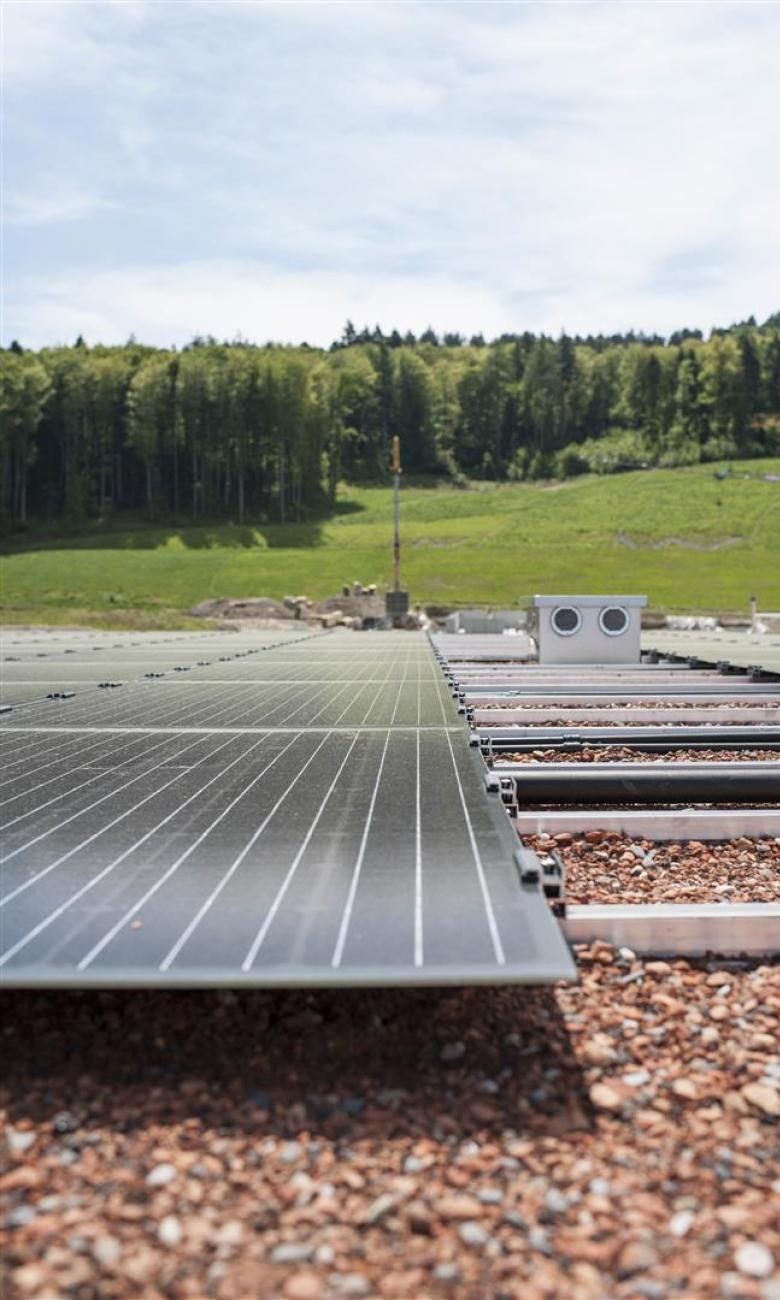
Inward urban development
Switzerland's built environment continues to grow. The amended Spatial Planning Act, which was approved by Swiss voters in March 2013, therefore has two main goals: to promote inward urban development, i.e. better use of available land and re-zoning to contain urban sprawl. This is an effective way of slowing the spread of urban settlement and limiting its impact on unspoilt landscapes. Furthermore, in May 2020 the Federal Council adopted the Swiss Soil Strategy, which aims to achieve zero net soil loss by 2050.

© OFEV/Christian Koch/Julius Heinemann
Contribution to combating climate change
Climate change is a global problem. A variety of measures have been taken in Switzerland to help keep the rise in average global temperatures below 1.5°C by 2050. The focus is on reducing greenhouse gas emissions, which are the main cause of the climate-warming greenhouse effect. Measures must also be taken to adapt to climate change, such as greening public spaces and facades to prevent the formation of heat islands. The Federal Council set out its national climate change adaptation strategy in its first action plan in 2014. The second action plan will be published in 2020. Fossil fuels are subject to a CO2 levy, which has been raised in stages, most recently in 2018 to CHF 96 per tonne of CO2. This levy affects the industrial and construction sectors in particular, which together account for over half of Switzerland's greenhouse gas emissions. One third of the revenues from the CO2 levy flows into a buildings programme to help fund energy-saving renovations and the use of renewable energy. Over half of the revenues are redistributed to the public, with rewards for lower fossil fuel consumption.
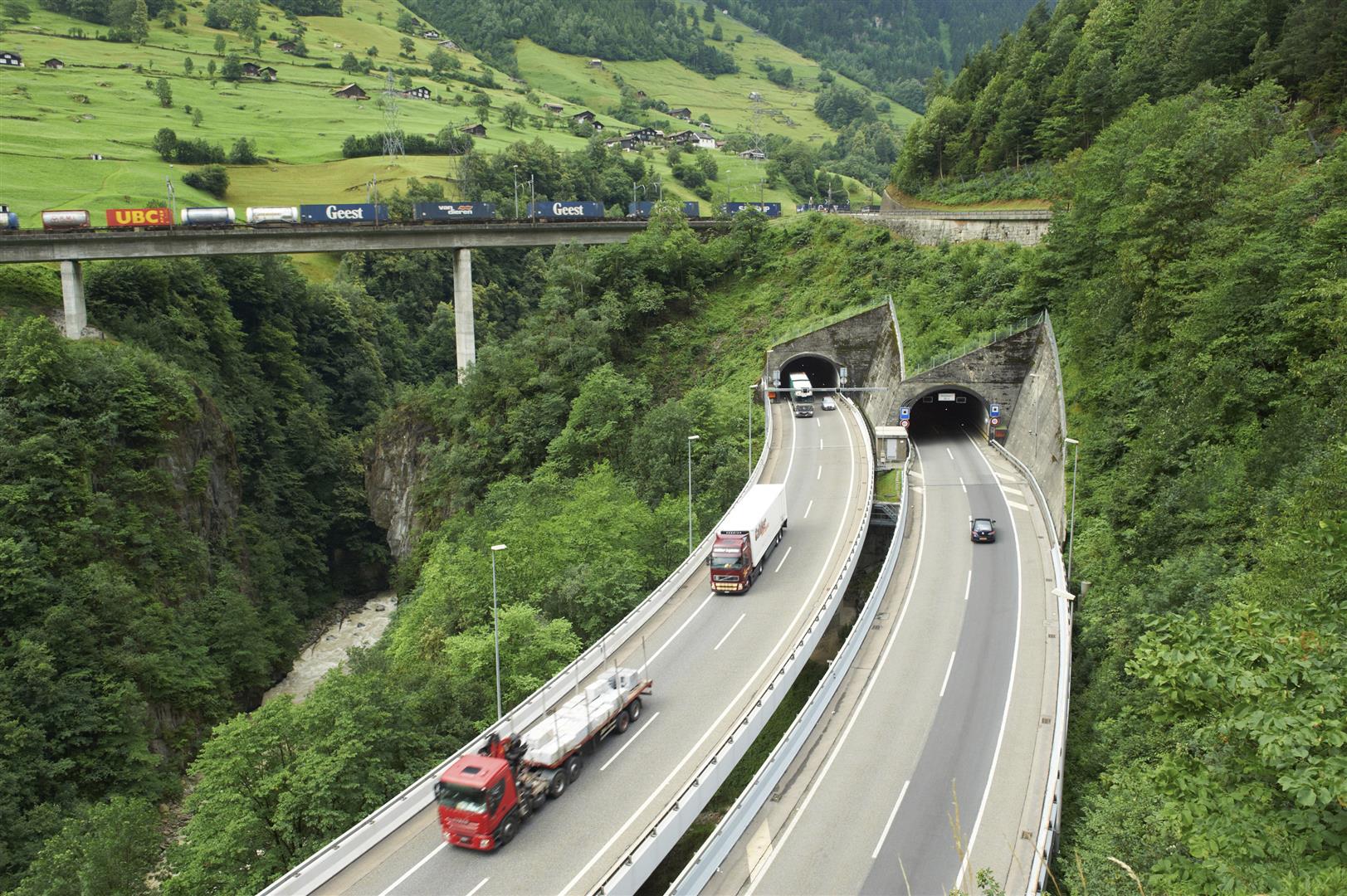
© OFEV/Theodor Stalder
Preserving water quality a Swiss duty
Switzerland, known as Europe's reservoir, is the source of numerous European rivers, including the Rhine and the Rhone. The wastewater treatment plants built over the past half century have greatly improved water quality. In order to eliminate micropollutants, including residues from medicines, cosmetics and pesticides, the Federal Council has decided to add an additional treatment stage to the largest of the approximately 800 wastewater treatment plants in Switzerland over the next 20 years. It has also adopted an action plan to reduce the risk and promote the sustainable use of plant protection products, which are among the most widely used pesticides. Together with ongoing renaturation programmes, these measures are designed to further improve the environmental condition of Switzerland's water bodies.
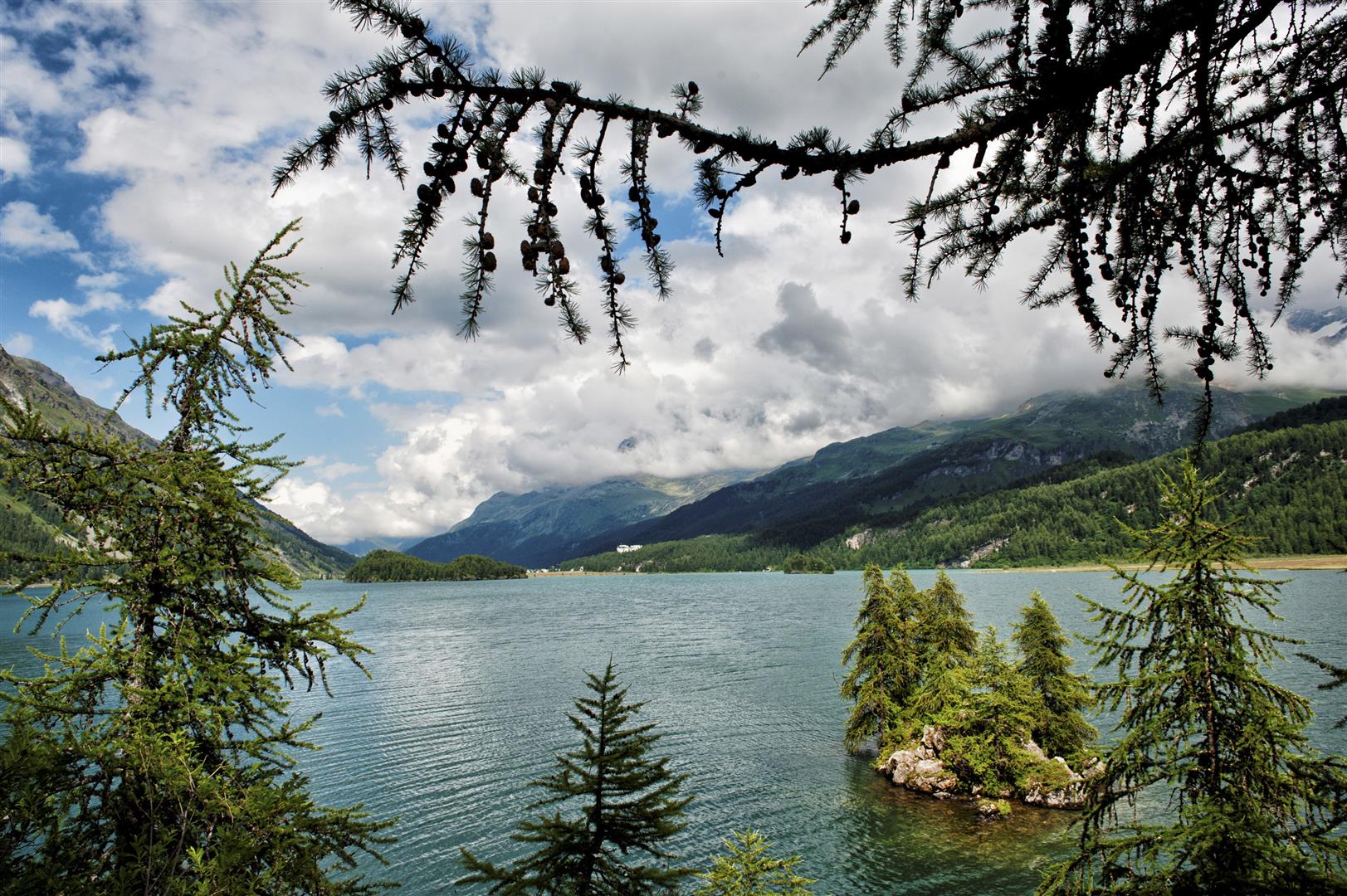
© OFEV/ Markus Bolliger
Preserving biodiversity, a win-win
Biodiversity is necessary for human life and economic activity, shapes a country's cultural identity, and has a positive impact on people's health and well-being. We depend on biodiversity for food, medicine and other products as well as the leisure and tourism industry. Biodiversity also plays a key role in clean water and air, is necessary for the pollination of plants, and provides protection against flooding. Thanks to its wide range of different mountain and valley habitats, climatic conditions and soil types, Switzerland has an extraordinarily rich biodiversity which supports over 45,000 surveyed species. But this biodiversity has been declining for decades. Half of Switzerland's habitat types and almost half of all surveyed native species are threatened or potentially threatened. In 2017, the Federal Council adopted an action plan for the Swiss Biodiversity Strategy and increased funding for nature conservation. In addition to encouraging land use that promotes biodiversity, the main objective is to develop a well-functioning network – an ecological infrastructure – of linked protected areas for Switzerland's plant and animal species.

© OFEV/ Franca Pedrazzeti
Better air quality
Air pollutant emissions have been considerably reduced in recent decades as a result of measures taken by the Confederation, cantons and municipalities. Reduced emissions from furnaces, industrial and commercial operations, vehicles and combustion engine-driven machinery have also had a positive impact on air quality. Measures to reduce emissions have resulted in a 50% decline in particulate matter concentrations over the last 20 years. To maintain good air quality, Switzerland supports the development and deployment of environmentally friendly technologies. Particulate matter, nitrogen dioxide, volatile organic compound and ammonia emissions must be further reduced through the consistent promotion and use of state-of-the-art technologies for motor vehicles, agricultural and industrial plants and heating systems throughout Switzerland.
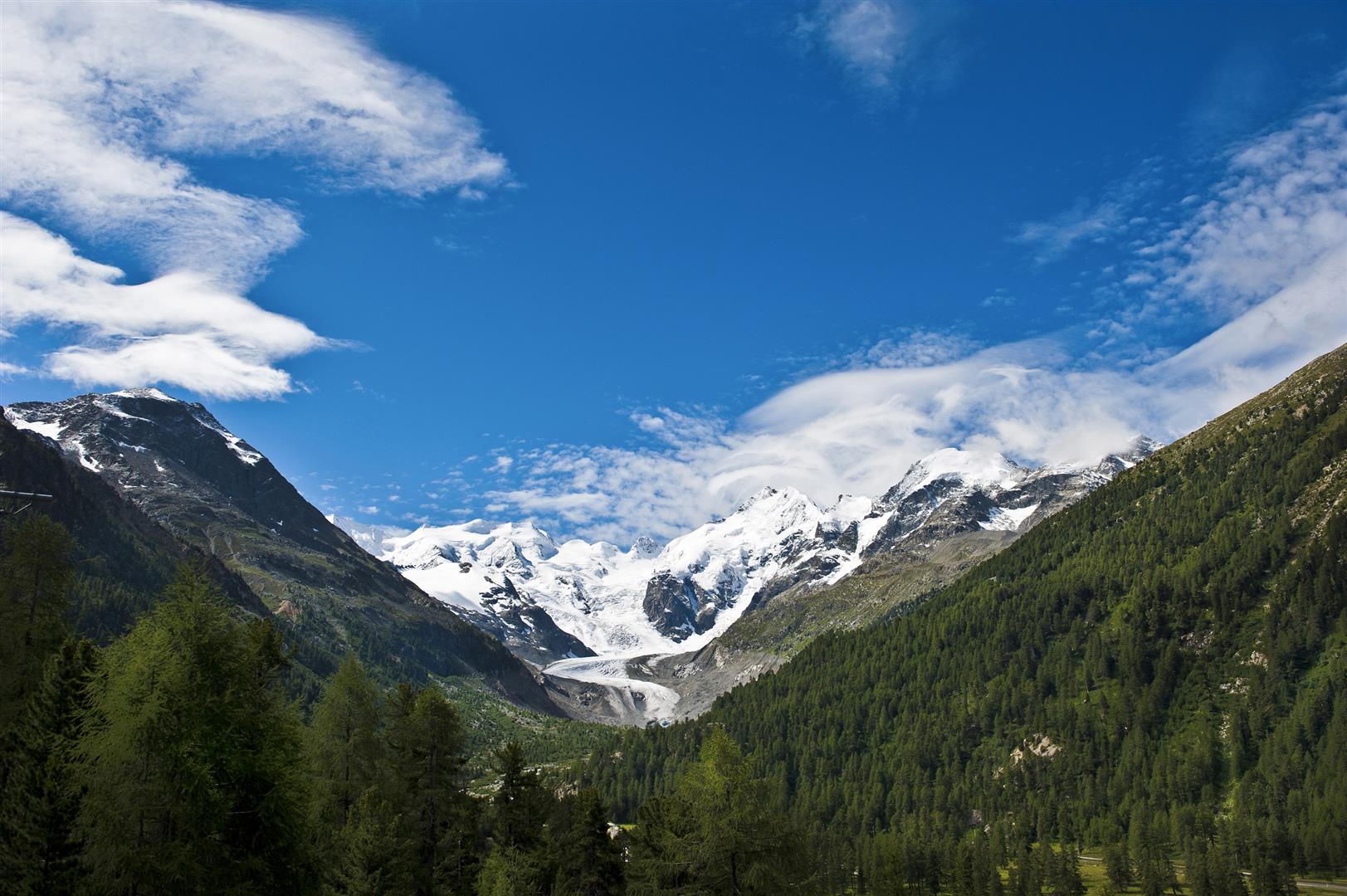
© OFEV/Markus Bolliger
Putting the many benefits of healthy soil to good use
Soil is a limited and non-renewable resource with great ecological and economic value. Soil fulfils numerous functions and provides vital benefits for society. It is used to produce food and to filter and treat water for human consumption and also functions as water reservoir and carbon sink. Unfortunately, Switzerland's soils are also subject to continuous degradation caused by construction activities, erosion, compaction and pollution. To ensure that future generations will continue to enjoy the diverse benefits of Switzerland's soils, the Federal Council adopted the Swiss Soil Strategy in May 2020. The objective is to stop soil degradation by 2050. The revised sectoral plan for crop rotation areas will also help to better secure Switzerland's most fertile agricultural land over the long term. Because knowledge of Switzerland's soils remains incomplete, the Confederation has set up a Soil Competence Centre to serve as a soil information and services platform and is also developing a nation-wide soil mapping concept. The data obtained will be used to better assess soil conditions and take more targeted measures for sustainable soil management.
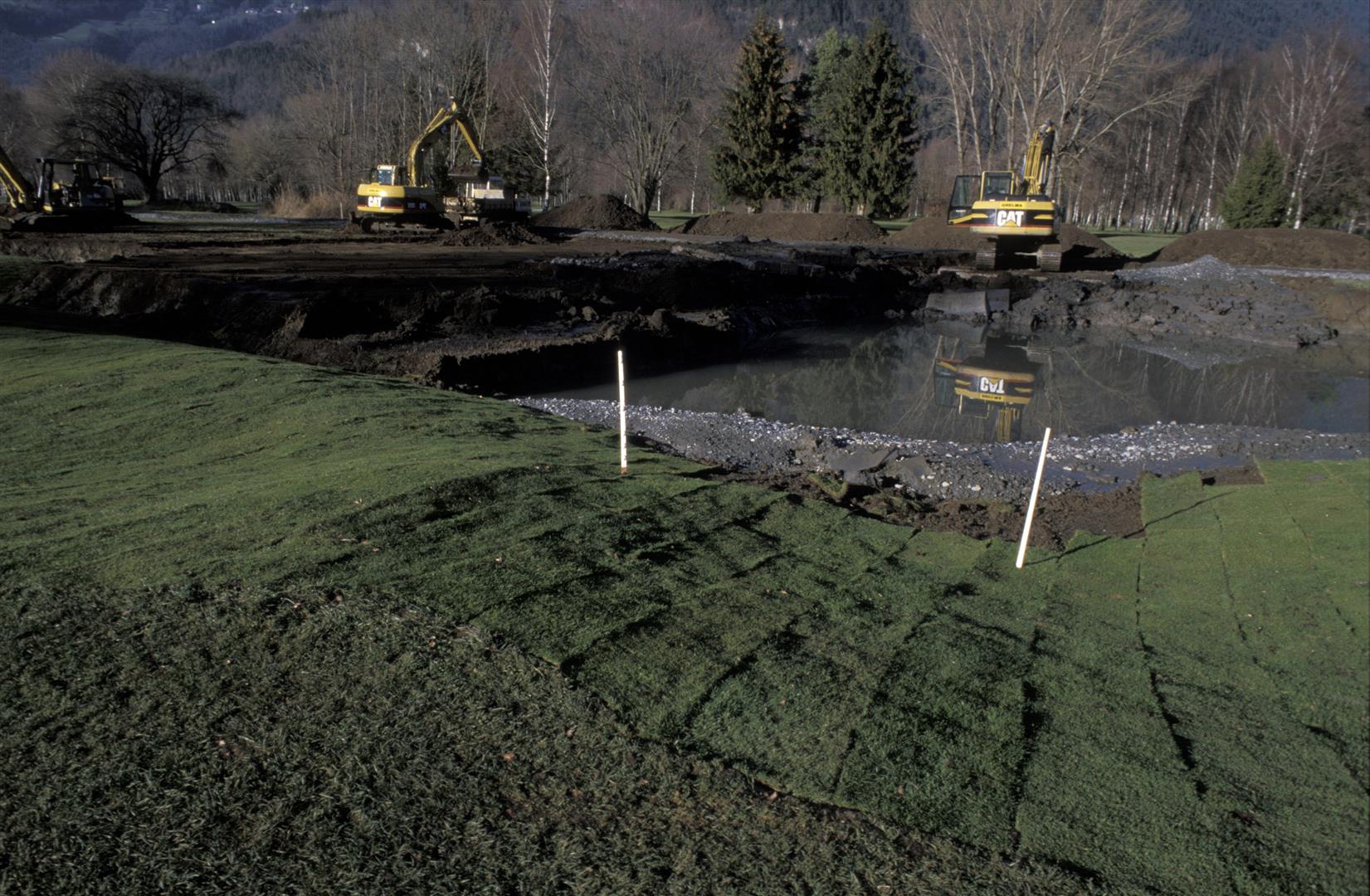
© OFEV/Emanuel Ammon
Landscapes - a factor in Switzerland's economic success
Switzerland boasts an extraordinary variety of landscapes, which make the country a highly attractive place to live in and do business. Switzerland's landscapes are a major reason for its high quality of life, an essential asset for the tourism industry, and important resources for other sectors of the economy. Nevertheless, characteristic features of Switzerland's regional landscapes and its flora and fauna habitats are in decline. In May 2020, the Federal Council therefore decided to update the Swiss Landscape Concept. The concept sets binding targets on public authorities to ensure that the development of Swiss landscapes as places for living, working, industry and recreation is environmentally sustainable. The goal is simple: Switzerland needs its precious environment now more than ever.
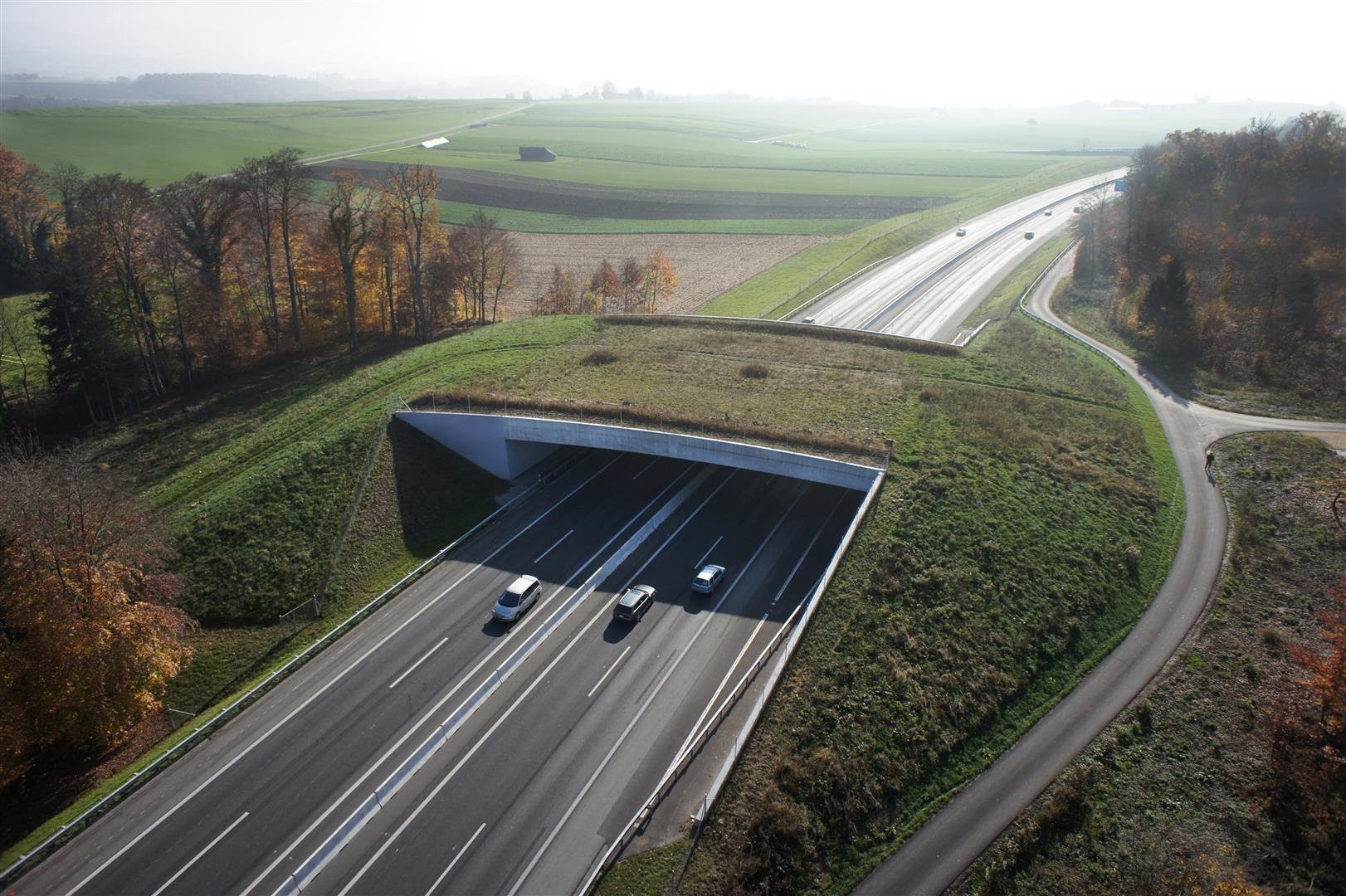
© OFEV/Emanuel Ammon




